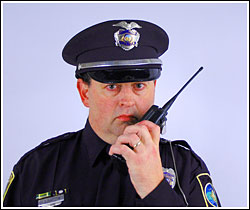The Police Subculture
Police Argot and Communications
Subcultures are known to spawn their own particular argot (slang) specific to the everyday workings of the members of the organization. Likewise, small groups of officers within a precinct or squad may create their own argot so as to hide from other officers or supervisors where they are or what they're doing. Although this may seem innocuous to some, this type of covert evasion of supervision can be most problematic for supervisors and administrators. Such was the case involving "The Buddy Boys." In this case, 13 New York City police officers in one of the NYPD Brooklyn precincts were indicted for stealing and selling drugs. In testimony given before the Mollen Commission, one officer told how he communicated with other corrupt officers using preset argot when contacting other Buddy Boys over the police radio to set up robberies of drug dealers. Now, thanks to cell phone technology, police officers have a more covert communication capability than ever before. Transmissions over the police radio system are taped. Cell phone communications are not.

Police also use argot to enhance their position in the eyes of the public, as implied in the the time-tested phrase, the thin blue line. Police commonly see themselves as all that stands between citizens and total anarchy. In some sense, this is true when one considers what happens when massive power failures occur such as the 2003 blackout in the Northeast that affected almost the entire state of New York. Without electricity, most communications are cut creating a disconnect between citizens' calls for services as well as intra-police communications. Similarly, in times of great natural disasters such as Hurricane Katrina, all communications are lost and looting and anarchy does reign supreme. However, these are the exceptions to the rule. For the most part, millions of people go through their daily routines in comparative safety.
